Bruce Gilley is a professor of political science at Portland State University and a member of the board of the National Association of Scholars. In addition to his work on academic freedom and the revival of intellectual pluralism on campus, Dr. Gilley’s research centers on comparative development and politics as well as contemporary public policy issues.
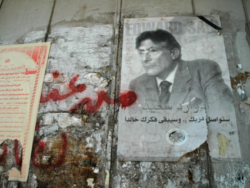
I once sat on a faculty hiring committee for an international studies position that rejected a candidate because she failed to apply the theories of Edward Said to her work. Said, a former professor at Columbia University, is most renowned for his theory of “Orientalism,” which posits that every interaction between the West and the […]
Read More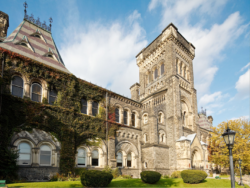
My grandfather attended the University of Toronto. My father attended the University of Toronto. I attended the University of Toronto. And now my daughter is attending the University of Toronto. This is a large public university that is not particularly difficult to get into with decent grades. But the fact of this great chain of […]
Read More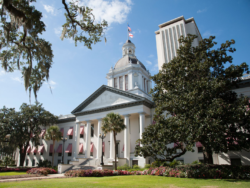
Last year, Florida’s Stop W.O.K.E Act banned the teaching of certain race-based concepts in K–12 schools and higher education, including the notion that one race is superior or inferior to others. That is an appropriate prohibition in the K–12 system, where young people are particularly vulnerable to the misuse of research by ideological teachers. This […]
Read More
Some critics think that to merely step foot on an American college campus today is to be immediately assaulted by gender studies speakers and decolonization posters. Each and every student, it appears, is caught in a web of woke studies from which there is no escape. But spend a cozy evening nestled by the fire […]
Read More
Editor’s Note: This piece is part of an ongoing series of articles by Professor Bruce Gilley. To read the other articles in the series, click here. Let’s start with the obvious. The plague of junk citations in modern academic research will not be curbed by digital or bureaucratic means. For every clever new software tool […]
Read More
Editor’s Note: This piece is part of an ongoing series of articles by Professor Bruce Gilley. To read the other articles in the series, click here. Just when serious scholars started to worry about the pandemic of junk citations, others were positively promoting them. The “citation justice” movement I discussed in the last installment is […]
Read More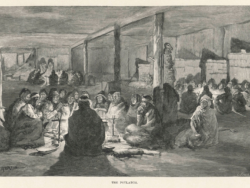
Editor’s Note: This piece is part of an ongoing series of articles by Professor Bruce Gilley. To read the other articles in the series, click here. If you plan to present a paper at the Conference on College Composition and Communication in Spokane next year, please be advised: your submission needs to be chock full […]
Read More
Editor’s Note: This piece is part of an ongoing series of articles by Professor Bruce Gilley. To read the other articles in the series, click here. In 1980, two doctors from the Boston University Medical Center published a five-sentence letter in the New England Journal of Medicine noting that only four of their 11,882 patients […]
Read More
Editor’s Note: This piece is part of an ongoing series of articles by Professor Bruce Gilley. To read the other articles in the series, click here. In a grant request I was recently asked to review, the applicant cited a 2022 academic article by the grandly titled Boeing Distinguished Assistant Professor in Environmental Sociology at […]
Read More
On March 2, the magazine of record for professional librarians in the United States, Library Journal, will host an online seminar entitled “Resisting Book Bans.” On the surface, the seminar could not be more timely. Since 2018, academic and public libraries have been banning books with increasing frequency because they fail to promote the progressive political […]
Read More
The debate about science and its place in public policy goes way back. When President Obama pledged in 2009 to “restore science to its rightful place,” he merely begged the question: What is the rightful place of science? In their more extreme forms, postmodernists deny the possibility of truth that is validated by repeated observations, […]
Read More
In the acknowledgements to her infamous Yale Law Journal article of 2017, the Biden administration’s hipster Federal Trade Commission (FTC) chair, Lina Khan, thanked Berkeley Law professor David Singh Grewal “for encouraging me to pursue this project.” The article, “Amazon’s Antitrust Paradox,” argued that Amazon should no longer be treated as a private-sector company but […]
Read More
News of the University of Oregon’s October 14 conference on academic freedom sparked a furor. The lineup of conference speakers was totally unbalanced politically, made up entirely of leftists and radicals. Because of the format, there would be no opportunities for tough questions from the press or for debate with conservatives. As a result, dozens […]
Read More
A constant concern in my academic sub-field of comparative politics is how to create concepts and measurements that stand up to scrutiny when applied to several cases. When we hear someone claim that politics in Country X are “corrupt,” our first questions are “What do you mean by corruption?” and “Compared to where?” This concern […]
Read More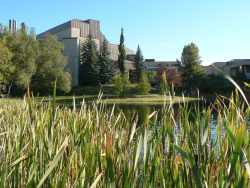
Five days before Christmas, one of Canada’s most courageous scholars was fired by her university because she had consistently dissented from its rigid ideology on indigenous issues. I wish there were more to say about the shameful expulsion of Professor Frances Widdowson by administrative heavies at Mount Royal University (MRU) in Calgary. Alas, the story […]
Read More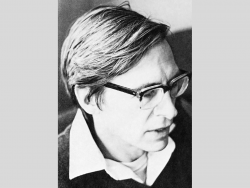
Fifty years ago, a little-known political philosopher at Harvard named John Rawls published a lengthy book titled A Theory of Justice at the well-cured age of 50. It was a bold offering because most people assumed that the major issues in political philosophy had been thrashed out by the greats. The only work remaining was […]
Read More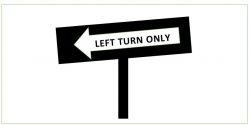
Looking forward to a lively annual conference of the American Political Science Association, due to start this week in San Francisco, I proposed a panel on “Viewpoint Diversity in Political Science.” After all, I thought, wasn’t the 2016 election a signal lesson in the continuing relevance of diverse viewpoints in the American body politic? My […]
Read More
When I was nearing the end of my Ph.D. studies in politics at Princeton University in 2006, I was invited to interview for a job at the University of California at Santa Cruz. Midway through the interview process, I was asked by graduate students how I would change my curricula to “accommodate the needs of […]
Read More